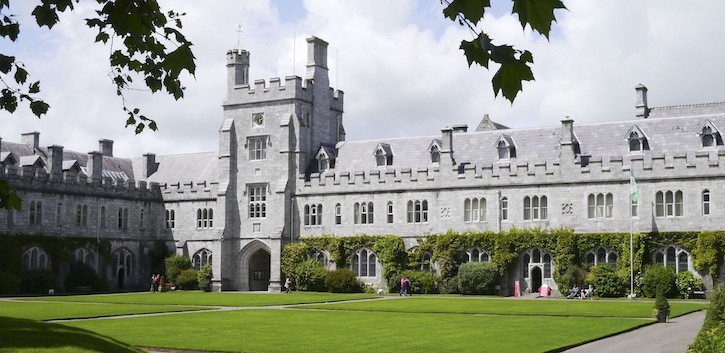In This Section
Double Award for Ph.D. Student

Tyndall Ph.D. candidate and Clonakilty native, Lisa Helen, has been celebrated with two prestigious awards for her research on tissue bioimpedance using a macro-needle.
Her final year CIT-UCC research project in Biomedical Sciences, completed in the Tyndall National Institute, has proved the feasibility of an improved method for potentially administering anesthesia.
As the top marked student from her final year project in CIT-UCC, Lisa was nominated to compete in the President’s Prize competition at the Academy of Medical Laboratory Science annual conference, Biomedica 2014, in the RDS Dublin. Lisa presented her talk entitled, ‘Investigation of Tissue Bioimpedance using a Macro-needle for Biomedical Applications’. Competing against the best of her peers from around the country, Lisa’s project was awarded 2nd place and was highly commended for its innovative and original approach.
This prestigious prize was closely followed by the European Technology Platform on Smart Systems Integration’s announcement that Lisa had won their “Best Poster Award 2014” for ‘Development of a 'smart' needle integrated with an impedance sensor to determine nerve proximity for nerve blocking (anaesthetic) procedures’. Her star looks set rise as she is invited to speak at the Smart Systems Integration Conference in March, 2015.
Lisa’s project addresses an unmet need for an innovative type of anaesthesia, ultrasound guided nerve block, which is currently replacing conventional general anaesthesia worldwide for a broad range of surgical procedures. Working closely with clinicians at the ASSERT for Health research group (UCC and CUH), current technical limitations with ultrasound guided nerve block anaesthesia were identified. The research will allow for the integration of an impedance sensor to a hypodermic needle tip. The sensorised needle can differentiate between tissue types, confirming real-time needle tip location and enabling clinicians to eliminate the risk of injecting anesthetic in nerve bundles. This solution addresses the clinicians need, and makes the process of ultrasound guided nerve block anaesthesia administration more accurate, efficient and lessens procedural risks for the patient.
“Having a collaborator of the caliber of Lisa working on the smart needle project has added serious impetus to the overall project.” says Dr Brian O’Donnell, Consultant Anaesthetist at Cork University Hospital and specialist in ultrasonography in regional anaesthesia.
He continued , “Lisa’s PhD work is funded by the Irish Research Council and this prestigious award has enabled the smart needle project to gather momentum. This has allowed us to deliver on key milestones of solution development and evaluation. The use of ultrasound guided peripheral nerve block anaesthesia has increased dramatically worldwide over the past five years. This form of anaesthesia is now a key core element of all higher specialist training programmes internationally. There are benefits to both the patient and the healthcare environment when nerve block is used in place of general anaesthesia for a wide number of surgical procedures. One of the fundamental challenges facing specialist anaesthetists is identifying the exact relationship between needle tip and nerve during the nerve block procedure. The smart needle has the potential to improve the accuracy of anaesthetic delivery and improve nerve block safety, effectiveness and efficiency.”
The project, which was initially supported by Science Foundation Ireland’s TIDA programme, was proudly able to proclaim that the use of bioimpedance for needle guidance is feasible and as a result, the fabrication of a smart needle is underway. Lisa is currently doing her PhD studies under the supervision of Dr Eric Moore at Tyndall National Institute, University College Cork. Her research is funded by an Irish Research Council Award.
School of Chemistry
Scoil na Ceimic
Contact us
Second Floor, Kane Building, University College Cork, T12 YN60
